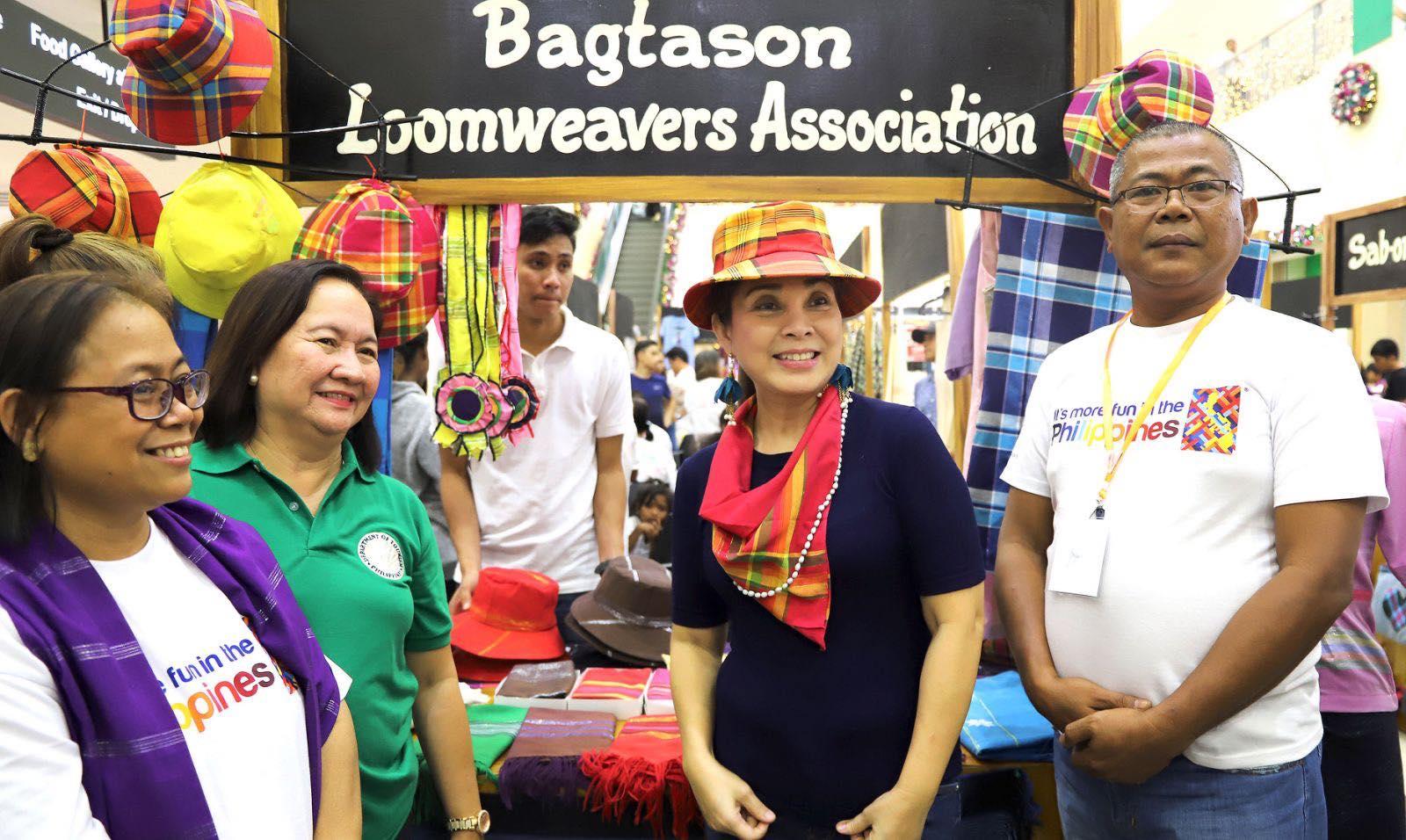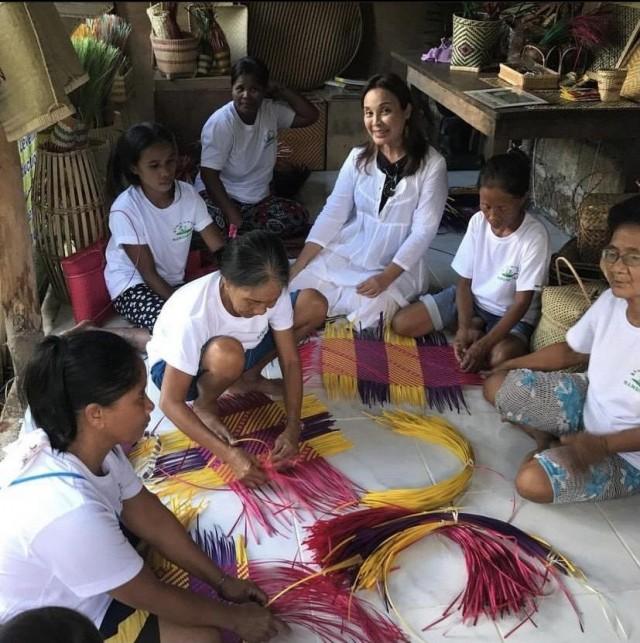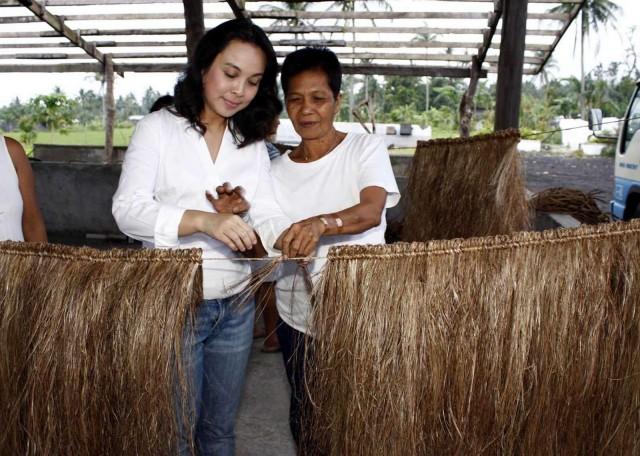Legarda to Congress: Increase budget for livelihood programs to sustain pandemic recovery efforts

Three-term Senator and now Deputy Speaker Loren Legarda called for a sustainable and resilient pandemic recovery through better employment facilitation and more accessible livelihood opportunities for all Filipinos.
Legarda made the statement following news reports of Bloomberg’s recent Covid-19 Resilience Ranking where the Philippines came last among 53 major economies worldwide. The research looked at how the different countries are handling the COVID-19 virus and those with the least social and economic upheaval ranked high in the list.
“The report highlighted problems in quality healthcare and in the vaccination rollout. We are aware that concerned government agencies are trying to catch up in the implementation of programs to address these concerns,” Legarda noted. “However, more than these, the government should also double its effort in providing more livelihood opportunities in order to take care of our human capital. Our people appreciate the immediate financial assistance given to them by the government, known as ‘ayuda,’ during the pandemic. But eventually, everyone would want to be economically empowered and financially independent.”
As former Chairperson of the Senate Committee on Finance, Legarda noted that the proposed PHP5.024-trillion national budget for Fiscal Year 2022 will go a long way in providing support and in strengthening employment creation, facilitation and enhancement in the country if existing socio-economic programs of various agencies in the country are funded sufficiently.
“For instance, the Department of Social Welfare and Development has a Sustainable Livelihood Program (SLP) which is among the livelihood programs that need to be sustained and augmented as it supports families belonging to the Pantawid Pamilyang Pilipino Program (4Ps), considered to be the poorest of the poor. The program is aimed at uplifting their socio-economic status and enabling them to start anew, especially amid this crisis,” Legarda said.
The three-term Senator noted that under the National Expenditure Program (NEP), only Php 4.864 billion is allocated for SLP and with this proposed allocation, only around 8% of the 4 million families who are 4Ps beneficiaries will be accommodated under the microenterprise development track, one of the two tracks under SLP which provides a maximum of Php 15,000 seed capital fund for small businesses such as sari-sari store, shoe repair, poultry raising, among others.
The other track is employment facilitation which grants a maximum of Php 5,000 per individual as assistance for the processing of employment documents and/or for the payment of expenses for the first fifteen days of employment.
To address this concern, Legarda wrote a letter to House Speaker Lord Allan Velasco and Appropriations Committee Chairman Eric Go Yap, recommending the increase in the SLP budget by P1.8 billion, upon the request of the DSWD itself, to be able to cater to additional SLP 120,000 beneficiaries next year.
The three-term Senator, who authored and sponsored laws that promote livelihood and employment including the Magna Carta for Micro, Small and Medium Enterprises (MSMEs), Barangay Livelihood and Skills Training Act, and Public Employment Service Office (PESO) Act, lamented that “the national budget for next year should be a pandemic recovery budget that gives priority to the poorest of the poor and addresses the needs of vulnerable communities.”
“We already have existing socio-economic programs aside from 4Ps and SLP such as DOLE TUPAD, DOLE Pangkabuhayan, DSWD Assistance to Individuals in Crisis Situation (AICS), DTI Shared Service Facilities (SSF), DOH Medical Assistance for Indigent Patients (MAIP), TESDA skills training programs, free college education, free irrigation for farmers, universal access to healthcare, among many others. What we have to ensure is that these get adequate funding and that people easily access these government assistance program,” Legarda said.
“In my home province of Antique, for example, since 2017 up to present, we have had 85,568 TUPAD beneficiaries; 4,751 Pangkabuhayan beneficiaries, and 9,377 Government Internship (GIP) Program beneficiaries under DOLE. Through these programs, we were able to assist my kasimanwa and help our local MSMEs survive during this pandemic. This is what I want to replicate in other provinces,” Legarda added.

“We have accomplished all of these within a short span of time in a province where people once did not know that these programs existed. Even if some of the Antiqueños are aware of these programs, they could not access said programs due to lack of allocation for the province. It’s really a matter of intentionally bringing government programs closer to the people,” she stressed.
“Time and again, I have said that health recovery through a faster and more efficient vaccination program rollout and upgrading of health facilities, and economic recovery through easier accessibility to livelihood programs are twin tracks that will bring the country to sustainable pandemic recovery. The budgets therefore for all these should be increased, if not doubled, so that we can provide the wherewithal for our people, especially the poorest families, to rise above the pandemic,” she concluded.

Legarda, principal author of the Magna Carta of the Poor, was Chairperson of the Senate Committee on Finance from 2015 to 2019 whose interventions in the national budget then made it possible for social services - such as free college education, universal healthcare coverage, increased funding for social services, free irrigation for small farmers, and more livelihood opportunities – to be made more accessible to more Filipinos.
*All photos were taken before the pandemic
Press release from Salvacion Z. Perez




